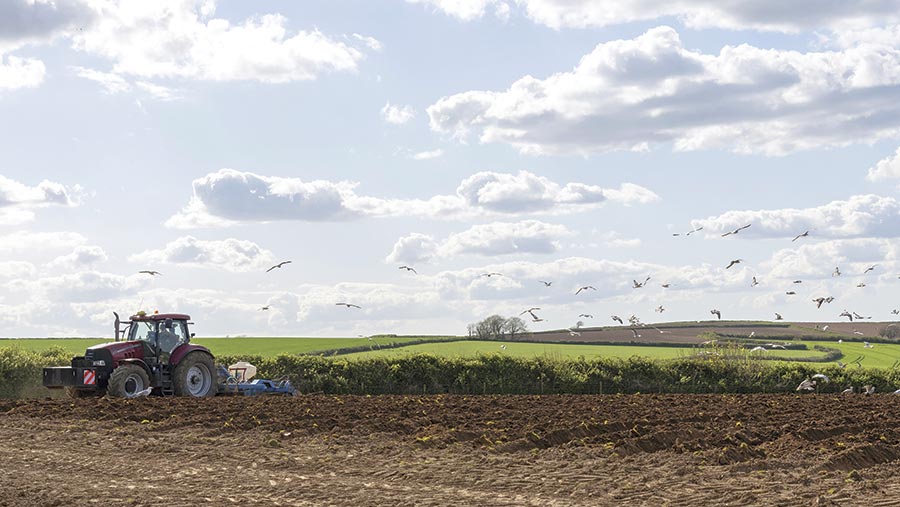Business Clinic: Should I invest in farm with messy legacy?
 © Petert2/Adobe Stock
© Petert2/Adobe Stock Whether you have a legal, tax, insurance, management or land issue, Farmers Weekly’s Business Clinic experts can help.
Duncan Sigournay, partner and head of agriculture at Thrings, advises on a complex inheritance and farming family situation.
Q. I am thinking of investing in a farm and it appears that through enormous mismanagement, nothing is clear. The father died in 2004 and probate has just been given – the estate passes to the mother.
The mother died two years ago and the district valuer has yet to agree the value of her estate. The daughter lived in one of the cottages and farmed the land for the mother for the few years before her death and thereafter.
The estate is left to the four children, one of whom is the daughter. Her siblings want to sell the farm. Here comes the crunch.
Nothing was ever in writing, payments were vague and bank statements have been lost. The daughter has animals on the farm.
No Defra payments were registered or claimed. I wish to go into partnership with the daughter. Does she have any rights to stay as a sitting/farm tenant or preferential rights to buy the farm?
A: You are right to be cautious about investing in the farm without clarifying things, not least given that at some point the farm will be vested in the four children.
As it will be a jointly held property, any one of the owners could seek to force the sale even without the agreement of the others. A court application would be required. Clearly you would not be wise to invest where there is a chance the farm could be sold.
You also raise the issue of the daughter possibly having rights of her own in the farm. It is unclear what those rights might be at this stage. She could potentially have been occupying part the farm as a tenant from her mother.
See also: Business Clinic – have I missed out on employment benefits?
Tenancy rights
Rent is not a prerequisite for establishing a tenancy. One would also need to understand when the alleged tenancy commenced since that will dictate which legislation applies.
It would seem unlikely that it commenced prior to the father’s death, in which case the daughter may, at best, have a farm business tenancy.
Such tenancies are relatively easy to terminate, subject to the correct notice being served, and so would not provide the daughter with any significant leverage against her siblings or her mother’s estate.
Alternatively, the daughter could potentially have been working in partnership with her mother. Again, evidence would be required to support such a claim.
She could even have been an employee of her mother or a contractor. In either case one would expect to see some kind of paper trail. From what you say, evidencing the arrangement may be difficult.
It is even possible the daughter was none of those and that it was never the intention to create any legal relations between her and her mother – in other words it was just an intra-family arrangement that suited everyone.
In such a scenario, the daughter would have no obvious leverage.
You also mention that the daughter occupied a cottage. That could give rise to a potential claim to a residential tenancy, although as mentioned earlier, there may never have been any intention to create a landlord-tenant relationship.
Value of farm
Clearly those potential claims could have an impact on the value of the mother’s estate and the ultimate distribution of the estate assets to the children.
They could also put her in a strong position to buy the farm from her siblings if she can show that those rights lower the value of the farm and that she is the key to unlocking a higher value.
On the other hand, if she has no residual rights it’s not inconceivable that she may actually be prepared to pay more than the market rate for the farm, given her history and eagerness to continue farming it.
Even if you resolve what rights, if any, the daughter has, you will need to ensure any arrangements you have with her are documented correctly so as to avoid any difficulties in the future.
There will be a number of ways that your involvement could be structured, including via a partnership, joint venture, share farming or contracting agreement. Professional advice should be sought to ensure your position is properly protected.
Accordingly, my advice is to ensure that the daughter’s interests in the property are resolved before you invest. Once you have sufficient certainty to invest, you should seek professional advice and then ensure everything is documented correctly.
Do you have a question for the panel?
Outline your legal, tax, finance, insurance or farm management question in no more than 350 words and Farmers Weekly will put it to a member of the panel. Please give as much information as possible.
Send your enquiry to Business Clinic, Farmers Weekly, Quadrant House, The Quadrant, Sutton, Surrey SM2 5AS.
You can also email your question to fwbusinessclinic@rbi.co.uk.

